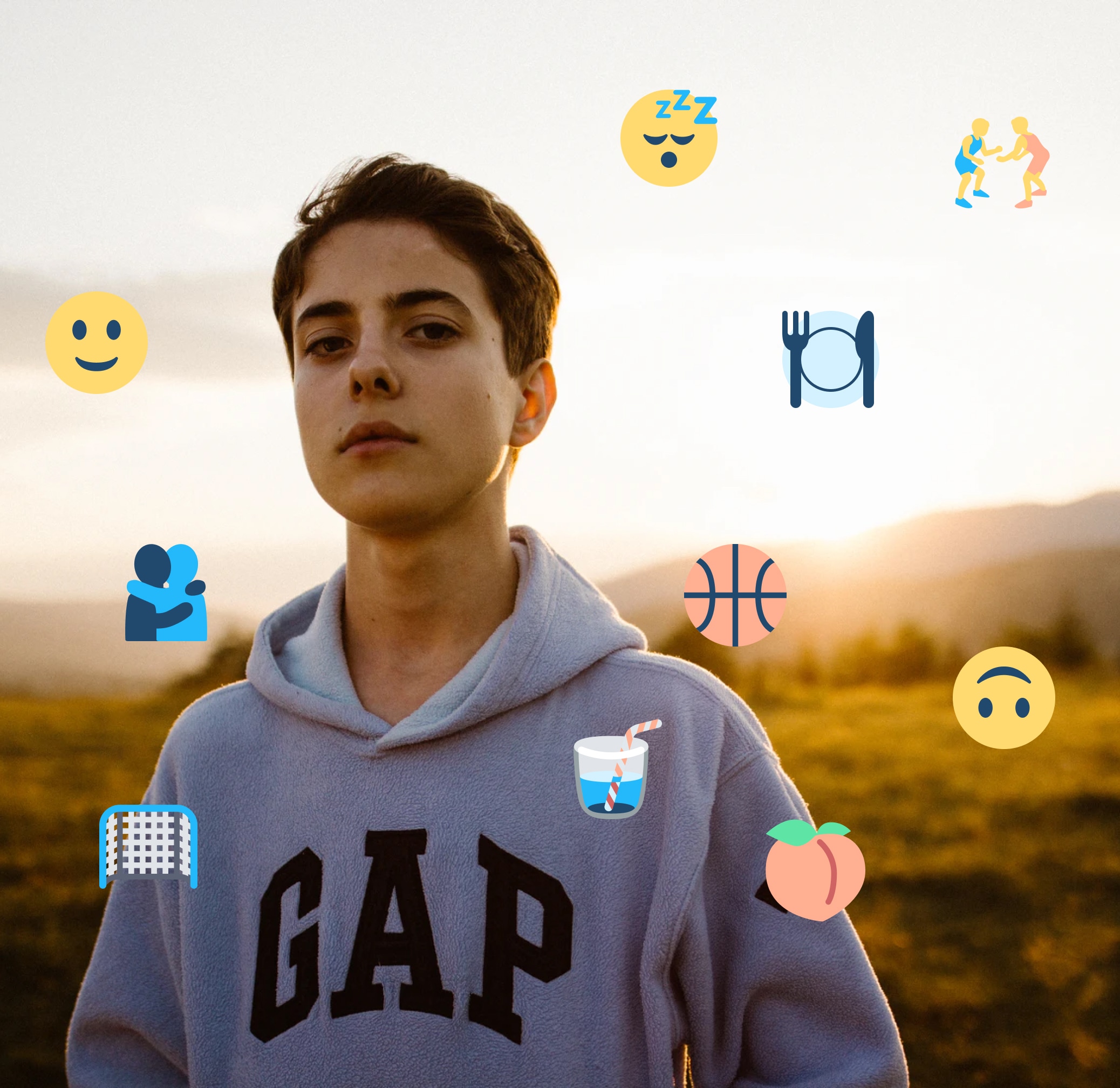Knowing what's going on inside your head
Understanding mental health in teenagers
Knowing what's going on inside your head
Understanding mental health in teenagers
Approved by doctor Frédéric Benoit, psychiatrist
Do you ever find yourself feeling angry, sad, or frustrated? It’s not just you; we all have our ups and downs. Your mental health can be great on some days and not so great on others. And this is completely normal.
Mental health can be defined as a state, or reflection, of your emotional and mental well-being as it relates to:
- Yourself (your self-esteem)
- Others (friends, family, etc.)
- Your environment (school, sports, etc.).
Think of it as a balancing act, a kind of internal scale, that helps you be well.

Is it possible to ⚙️ “work” on my mental health?
Regardless of whether of not you’re suffering from a mental illness, you can maintain your mental health on a daily basis with some helpful tools and healthy lifestyle habits. Much like with a new sport, the more you practice, the easier it gets.
Here are our advices
What can I do when I’m feeling unwell 🤕 ?
First, you have to realize that something’s wrong.
How? By paying attention to yourself! To do this, you need to stop what you’re doing, take a break and take the time to examine your thoughts, emotions and physical state. Only then will you be able to make a concrete effort to do things that can help you feel better. And in time, doing these things will become second nature. Want to learn how to manage your emotions? These exercises can be very effective.
Why is it important to take care of my mental health?
Teenagers can sometimes find it harder to manage their emotions because of the big changes that happen in the brain during adolescence.
Some teens also find it difficult to manage school pressure, bodily changes and social relationships, and this can lead to anxiety or depression as well.
Cultivating your mental health in your youth—that is, sooner rather than later—will give you the best chance of reacting positively when you’re going through rough times. It’s also key to developing and maintaining healthy relationships with friends and family, loving and accepting yourself, developing your personality based on a solid foundation, and preventing psychological distress.

What is the difference 🧐 between mental health and mental illness?
Mental health is a state that you can manage on your own on a day to day basis. Mental illness such as depression, however, causes changes in the brain that can affect your:
- Mood
- Thoughts
- Behaviour.
This can make it difficult to cope with everyday life and can lead to psychological distress. Read our What’s wrong with me? page to learn more about depression.
What is depression?Did you know?... Did you know?... Did you know?...
According to the WHO, 50% of mental health 🧠 issues appear before the age of 14, and ⚠️ 75% before the age of 22.
Also according to the WHO, depression is the leading cause of illness or disability among teens worldwide. 🗺

Approximately 75% of young people 🤐
suffering from depression are uncomfortable talking about their distress due to fear of being judged or rejected, and go untreated.
These days, 80%–90% of people diagnosed with clinical depression
can be effectively treated through medication 💊 or psychotherapy 🏥, which is an incredibly high success rate for any mental health disorder. This is why we continue to say that depression is reversible.
This is why we continue to say that depression is reversible.
Need to talk about how you feel?
Speak with a Tel-Jeunes worker: it’s anonymous, free and accessible 24/7
